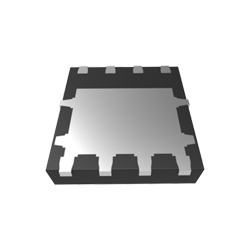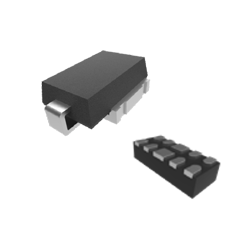/ Enhancing Convenience and Productivity
Cordless power tools open up a world of freedom for DIYers and professionals who need to perform a range of tasks — from yard work to industrial equipment. Compact and lightweight chargers provide all of the muscle needed for diverse tasks without making it cumbersome to bring them along.
First, the charger converts AC line voltage from the wall to DC at a lower voltage, then regulates that DC voltage to the optimal level for the battery. Charging cycles may include several stages, including bulk charger, constant current, or top-off charge. Automatically regulating the current and voltage throughout each stage, the charger brings the battery to a full charge. The type of charger will dictate how quickly the battery is charged.
Battery chargers are available in various configurations to meet different needs:
- Standard chargers - the most basic and common type of chargers designed for a specific battery platform, standard chargers are affordable and ideal for casual users.
- Multi-port chargers - utilizing 2, 4, or more ports, multi-port chargers power multiple batteries simultaneously, making them ideal for professionals who need to use multiple tools at the same time.
- Rapid chargers - in about 30 minutes or less, rapid chargers can deliver convenience in a hurry. However, they generate a greater amount of heat, which can reduce energy efficiency with every use and battery lifespan in the long run.
/ Application Considerations
To maximize performance and efficiency, engineers should consider the following when designing battery chargers for cordless power tools:
- Compatibility - chargers should match the voltage and current requirements of the battery packs they are used with.
- Compact design - enhance portability and convenience by utilizing a more compact design, as long as it still achieves charging and performance requirements.
- Efficient charging - the charger should recharge the battery as quickly as possible to minimize downtime without sacrificing power.
- Safety features - overcharge, temperature, and short-circuit protection mechanisms should be in place to prevent damage to the battery.
- Thermal management - heat is generated during charging, so proper heat dissipation methods must be in place to enhance safety and reduce power losses.
- User-friendly interface - clear, intuitive indicators should be used for effective communication of charging status and battery level.
- ESD protection - safeguarding sensitive components from electrostatic discharge and transients should be at the top of any engineer’s list for battery charger design.
- Energy efficiency - designs should be as efficient as possible, utilizing components that minimize energy losses and effectively dissipate heat.
- Durability - cordless power tools are used frequently and in harsh environments, so components should be robust enough to perform reliability in these conditions.
- Smart charging technology - to optimize charging, prevent overcharging, and extend battery life, smart charging technology can be used to communicate with the battery pack to monitor voltage, current, and temperature.
- Wireless charging - modern consumers expect the convenience and flexibility of wireless charging capabilities.
- Charging speed - standard and rapid charging speeds have different pros and cons that should be weighed against the application and other requirements.
- Diagnostics/feedback mechanisms - communication with users regarding charging progress and potential malfunctions is essential to maintain safe operation.
/ Block Diagram

/Recommended Products
Get a Competitive Edge on Your Next Project
No matter the application or industry, MCC has the service and components you need to get to market faster and reduce overall costs.



